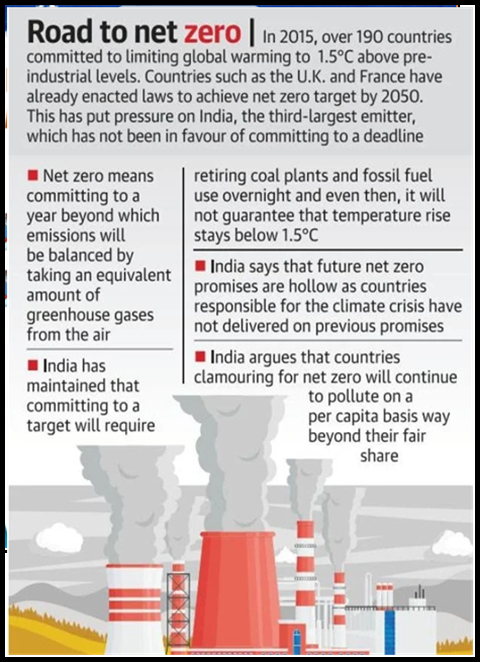‘NET ZERO 2070’ – ASSOCHAM CONFERENCE INAUGURATION BY UNION MINISTER
Why in the news?
A significant conference has been launched in India to enhance the cooperation of companies in India for fulfilling the commitment for net zero emissions by 2070 launched by Union Minister Kirti Vardhan Singh.
source:news18
About the Launching of ASSOCHAM Environment and Carbon Conference:
- ASSOCHAM Environment and Carbon Conference: The Environment & CarbonConclave initiated by ASSOCHAM in New Delhi was Flagged off by Shri Kirti Vardhan Singh, Union Minister of State for Environment, Forest, and Climate Change.
- Around the primary subject of the conference, one could hear discussions concerning “Fostering a collaborative ecosystem for achieving net zero by 2070.
- There is evidence of the personnel: government and leaders of the industry.
Address on climate change and collaboration:
- Mr Kirti Vardhan Singh said that climatic change is universal and does not have any respect for alliances and borders.
- He stressed the importance of collective approach towards climate issues and their solutions apart from emphasising on the NDC targets.
- Speaking on Mission LiFE, the Minister said that it will be used as a tool to add value to sustainable development.
About the India’s Renewable Energy and Efficiency Targets:
Reforms in Transport and EV Support:
Government Schemes and Industry Involvement:
|




